-

Tryst with Modern Jihadi Terrorism: By the mid-nineties, Libya was faced with a peculiar situation. The Gaddafi regime, which had successfully masterminded several acts of terrorism outside its soil, was now the target of radical elements within its territory. The veterans of the Afghan war included several thousand Libyans, some of whom returned to Libya to form the Libyan Islamic Fighting group (LIFG), with the aim to overthrow Gaddafi and establish an Islamic state based on Shariah laws.
-

The North African State of Libya has been in the news recently for reasons other than the controversial antics of its President, Colonel Muammar Gaddafi. The capture of the Al Qaeda operative, Abu Firaj al Libby, a Libyan citizen, in early May this year in Mardan (Pakistan) calls for a deeper study of the Al Qaeda-Libya connection. Almost exactly a month later, on June 3, 2005, Libya was in the news again when it was reported that an Al Qaeda cell in Libya had threatened an attack on the northeast coastal city of Darna if one of its cell leaders was not released from prison.
-
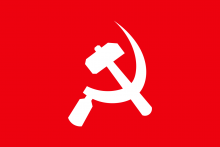
Of late, the Sambalpur district of Orissa has become a hotbed for Naxal activities. After a period of silence, the rebels have again managed to strike terror, and this time, they have attacked, killing civilians. Late last month, on May 27, the Maoists went on a rampage and killed three villagers and injured several others in the Burda village under Jujumura police station. Before this, Maoist activities were only confined to abductions followed by ransom. The incident came as a shock as the Maoists generally targeted the police, forest officials, contractors and other businessmen.
-
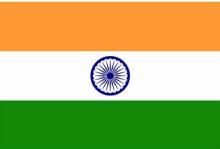
Trends in defence expenditure denote certain clues to assess, especially the military component of a state’s comprehensive national power. Components of national power, in turn, are intricately linked to a state’s grand strategy - the latter connotes the desire of a state to achieve its rightful place in the global community. In brief, trends in defence expenditure tend to objectively assess aspects of a state’s military capability, although a lacuna remains as even the very concept of military capability is often value-laden.
-
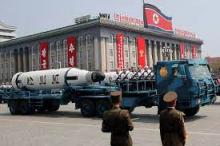
North Korea announced in February 2005 that it had nuclear weapons, and as per reports Pyongyang has already amassed enough fissile material to make six to eight bombs. Now with satellite reports giving indications, few analysts feel that North Korean preparation is on to test the device in the immediate future.
-
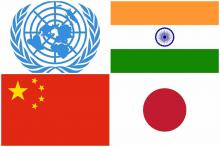
Just as India is vying for a permanent seat in the United Nations Security Council, Japan equally hopes for a larger role in the future of world affairs. Since Kofi Annan’s announcement in September 2004 of possibly increasing the permanent membership seats to nine from five, India and Japan, two of Asia’s powerhouses, pressed for their recognition. Indeed, one is the second most populous nation and the other holds the second largest economy, it seems fitting for them to have a say in future world affairs.
-
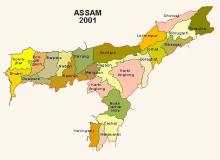
“Let's take an oath [...] no food, no job, no shelter to Bangladeshis". These are frantic calls to the people of Assam to throw out illegal Bangladeshis from the state. The result, thousands of illegal Bangladeshi migrants have left Dibrugarh, Jorhat, Golaghat and a few other areas in Upper Assam during the last couple of weeks. What triggered this exodus was the deadline imposed by an obscure student body, the Chiring Chapori Yuva Morcha (CCYM), formed on April 12 this year.
-
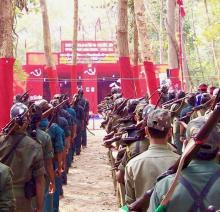
During the mid-1990s, the Naxal Movement (Left Wing Extremism) spilt over to Orissa from neighbouring Andhra Pradesh and the Jharkhand region. Now, the Naxal activities have enlarged to nine predominantly tribal districts, i.e. Koraput, Malkangiri, Nabarangapur, Rayagada, Gajapati and Ganjam abutting the Andhra Pradesh and Sundargarh, Mayurbhanj and Keonjhar districts adjacent to Jharkhand. While the above nine districts remain the Naxal stronghold, the movement has grown stronger in different parts of Sambalpur, Kalahandi, Bolangir, Phulbani, Deogarh, Jharsuguda and Anugul.
-

The renowned Vietnam War veteran General Vo Nguyen Giap has recently called for a novel kind of war on poverty. Can the warmongers accept this realistic call? While the decisive argument for the war is maintaining peace, thereby sustaining livelihoods, the truth is somewhat different. The countries' pledges to reduce poverty by half have gone awry as financial assistance is diverted to war. The amount of aid developed countries give poorer nations has fallen by half since the 1960s, risking the lives of millions of children.
-
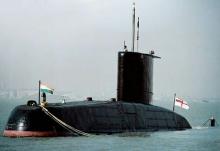
With sensors and submarine detection methods becoming more sophisticated and advanced, a submarine's primary advantage—its ability to operate undetected and unobserved—has been vitiated because it needs to surface frequently for recharging batteries. Even coming up to snorkel depth while evading human visual capabilities is now well within the cognisant ability of advanced ‘eyes in the sky’.
Paxton ported to drupal by DropThemes.in